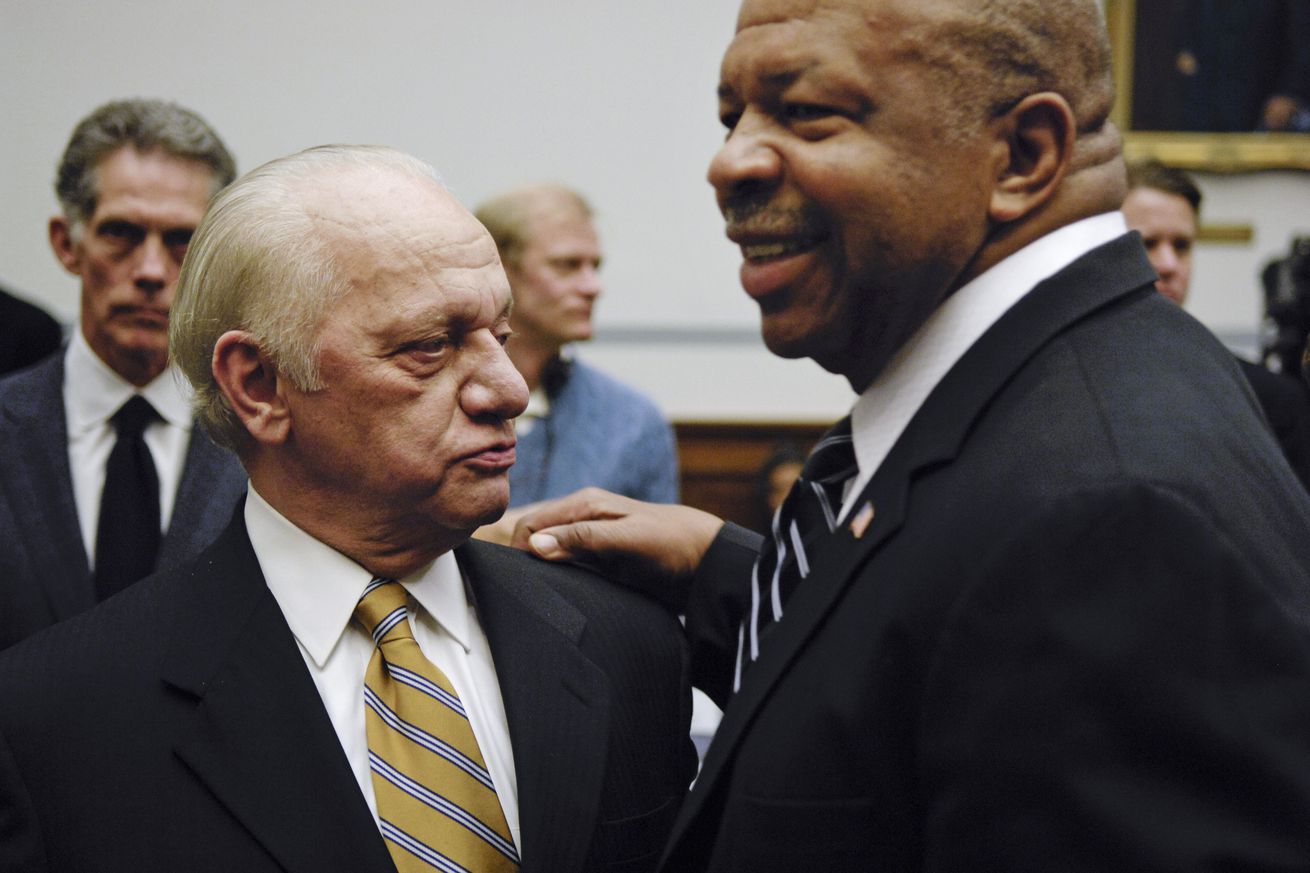
The team made the announcement on Saturday afternoon
It’s the end of an era of the Orioles. The team announced on Saturday afternoon that owner Peter G. Angelos, who made a fortune in asbestos-related lawsuits that allowed him to buy the team over 30 years ago, has passed away. He was 94 years old.
Though he’s technically been the owner the whole time, the Peter Angelos tenure as the person controlling the franchise came to an end several years ago, as it was sons John and Louis who were the public face as the team transitioned from the Dan Duquette/Buck Showalter era into the Mike Elias era. In the last few years, it’s been John Angelos who’s been calling the shots and giving the public quotes, with father Peter’s health having reportedly declined in such a way that he could have no presence publicly.
Through the team, the Angelos family released the following statement:
Today, Peter G. Angelos passed away quietly at the age of 94. Mr. Angelos had been ill for several years, and the family thanks the doctors, nurses, and caregivers who brought comfort to him in his final years. It was Mr. Angelos’ wish to have a private burial, and the family asks for understanding as they honor that request. Donations may be sent to charity in lieu of flowers.
Peter Angelos was, in a lot of ways, representative of the idea that a hero who lives long enough becomes the villain. In the early 1990s when Angelos led what was at that time a supergroup of Baltimore-connected investors, this was the big thing preventing the team from ending up in the hands of capricious out-of-town owners who don’t care about anything. It could have been Jeffrey Loria, who wrecked baseball in Montreal instead.
Within a few years of Angelos becoming the owner, the league faced the 1994-95 strike that had one canceled World Series and another season that began late, with missed games. Angelos famously refused to have replacement players field a team as the Orioles in the spring of 1995, an act more righteously awesome than any current owner of a team has likely done in their whole lives, or ever will do with the rest of their lives.
Yet not long after that, the history of Angelos as a meddler began to be written as well. Those of us who are old enough all have our own particular things that stand out. He was reportedly involved in vetoing personnel moves in a way that owners typically aren’t. He chased the excellent broadcaster Jon Miller out of town, an incident echoed just last year as John Angelos acted out vindictively against MASN’s Kevin Brown.
Angelos had his fingers in Davey Johnson resigning not long after winning the Manager of the Year award. As the team’s fortunes sank through the late 90s and early 00s, Angelos, to his credit, continued to allow the team to spend, but the general managers that he was hiring were not able to use those large payrolls for anything good and the team was mediocre for a long time. He was still getting involved at a level of detail an owner should probably not be involved. On balance, it did not work out.
The Peter Angelos era of the Orioles had some excellent highs in the early years of Camden Yards, with everyone able to bask in Cal Ripken Jr.’s chasing down of the consecutive games played record that he broke in 1995. The Orioles were in the postseason in 1996 and 1997, and were fielding teams with multiple future Hall of Famers even while not succeeding until Mike Mussina left after the 2000 season.
There were lows for a long time before the fortunes revived in the 2012-16 period, when a core of players that included Adam Jones, J.J. Hardy, and Manny Machado had the team in the postseason three times in a span of five years. We know, after the tanking era that followed, that one should not take this kind of sustained quality for granted.
It could go away at any time, in part because the owner negotiates a bad contract for the wrong player with Scott Boras. Then you might get stuck with your owner’s dopey son, who is more interested in having aged 70+ performing artists do concerts than in fielding a competitive team, until the son agrees to sell the team.
The overall quality of the team under the Angelos stewardship speaks for itself. Starting in 1993 until the present, the team has had an above-.500 record just ten times. Most of the bad years were really bad. Fair or not, he probably won’t be remembered fondly by Orioles fans, or at least not right away. His son’s control of the team certainly won’t. As time passes, it’s easier to forget about the bad and remember the good.
Angelos has passed away in the middle of the transition period as ownership is soon to formally be sold to a group led by venture capitalist and presidential history enthusiast David Rubenstein. That group also includes Ripken. The Athletic’s Britt Ghiroli indicated that this means that when the sale is approved by the full group of MLB owners, which is expected as soon as this week, the full Angelos stake will pass to Rubenstein’s group instead of the two-step transaction that was initially expected.
